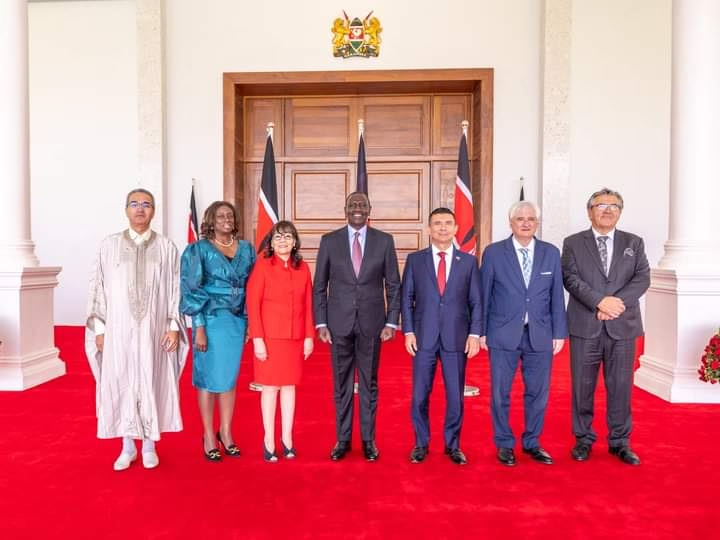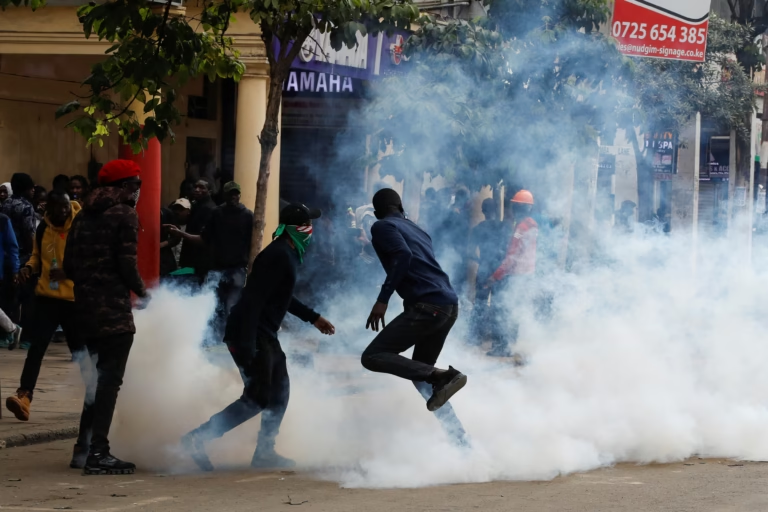
When other nations want to send ambassadors to Kenya, they often look for highly qualified individuals. As ambassadors frequently double as intelligence operatives. They do more than just collect political rumors from the leaders of the nation they work for.
Most of the time, they are negotiating on behalf of their nations, seeking out new opportunities to increase their nation’s commercial obligations.
For Kenya, the majority of ambassadors are essentially political deadweights, kin to the ruling class, devoted employees of various government agencies, including the military and parastatals, whose tenure has come to an end or who must be pushed out of that important parastatal or military post to make room for someone beneath them who is a member of the appropriate tribe or who has the necessary connections to take over. There are, of course, a handful that are great.
While other nations make sure the ambassador has the necessary experience or education, we don’t care about academic credentials at all.
Once Western ambassadors return home, they frequently publish highly insightful books. There hasn’t been a Kenyan ambassador that I can recall writing a book that is so educational it can be utilized in a university setting for diplomatic study.
I believe that in Africa, we prefer to be lazy. We enjoy providing gratuity for people to travel to and enjoy these distant nations. Is there any method by which we can evaluate the work that ambassadors do? Do we have goals in the nations where our foreign missions are located? Do we exert a lot of effort to achieve those goals?
Nonetheless, our brains are among the best in the world. Unfortunately, some of the brightest minds don’t have respectable last names, and for the most part, they are reduced to fighting departmental politics while languishing at some crappy university. As this is going on, average windbags rise to prominence and, before you know it, they are representing Kenya in a strategically important nation, despite the fact that they hardly know the nation they are representing.
I’m not sure what our ambassadors typically do. We don’t see our embassies responding quickly when necessary to assist a trapped Kenyan. Usually, it takes embarrassment for the media and Kenyans living overseas to do it.
The Kenyan government has consistently treated Kenyans living abroad with contempt. Ninety-nine percent of Kenyans living overseas did so voluntarily. By jobs, fleeing, scholarships, and other means. However, no Kenyan living overseas will claim that they traveled there as a result of assistance or interference from the government. Even scholarships awarded to the Ministry of Education are likely allocated to the politicians’ kids and relatives.
Kenyans living overseas are thus mistreated, yet we like their dollars, pounds, dirhams, whatever. Remittances from the diaspora have now surpassed our previous earnings from tea and coffee. Even though they have filled a sizable hole in our national budget, we still refuse to treat them with respect in exchange for a small portion of what they send.
Finally, I don’t believe that Kenya or Africa should constantly act in a “woiye woiye” manner. We have the right to be here, and the only way we can regain our dignity is by confronting bullies. Hiring capable individuals who are adept at navigating the delicate politics of diplomacy and who understand which side of the Kenyan bread is stale is always a good place to start.
We can only make the exchange one-sided by balancing it in this way. We import almost everything, yet even the best Kisii bananas aren’t allowed to leave the country because, allegedly, residents there eat GMOs, bats, and snakes.


